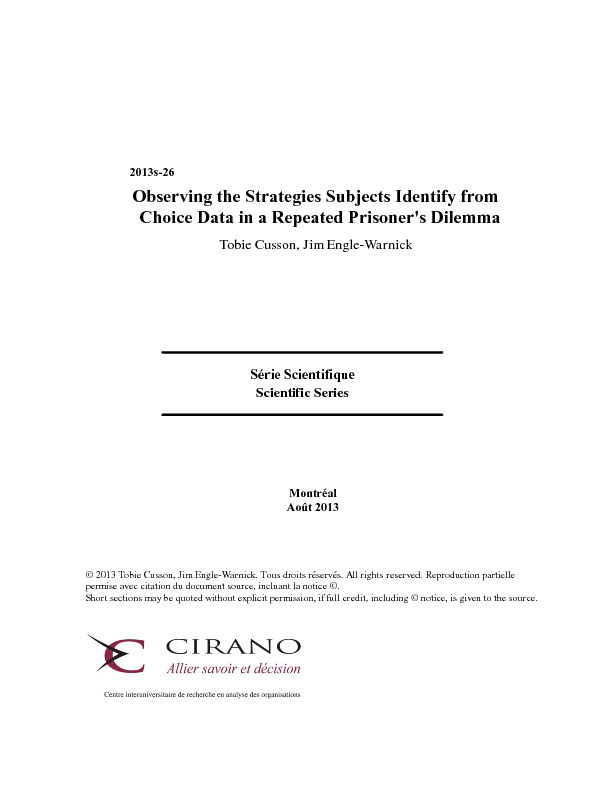Observing the Strategies Subjects Identify from Choice Data in a Repeated Prisoner's Dilemma
We experimentally test the ability of subjects to identify repeated-game strategies from prisoner's dilemma choice data. In the experiments, subjects use a finite state grammar to build models to fit game histories. The histories are designed to distinguish between strategies with empirical and theoretical validity. We find that subjects successfully identify unconditional, punishment, and counting strategies. When data are observationally equivalent among different strategies, punishment strategies tend to be inferred. When inferred strategies do not fit the data, they tend to be more complex than necessary and to contain positive reciprocity and forgiveness. Our experiment provides an empirical basis for repeated-game strategies and sheds new light on play in repeated games.
[ - ]




